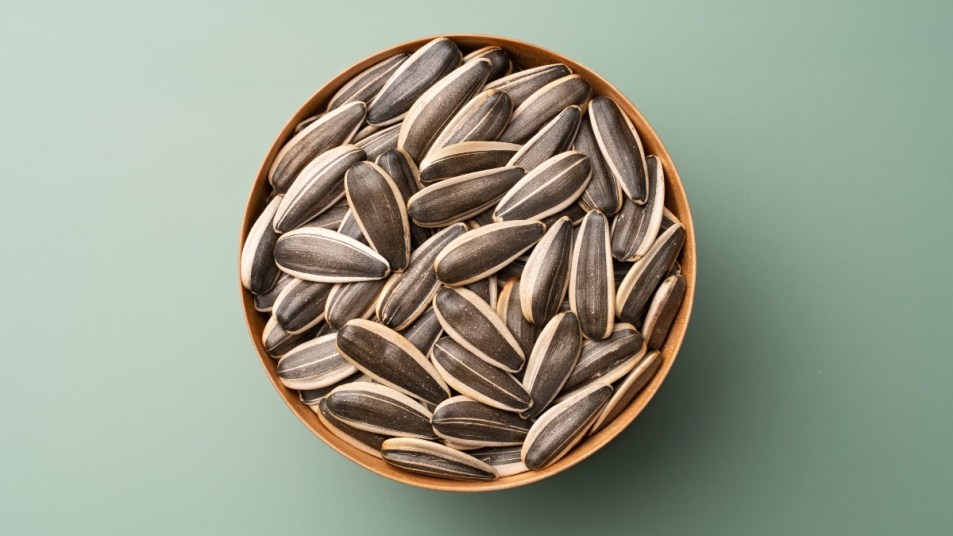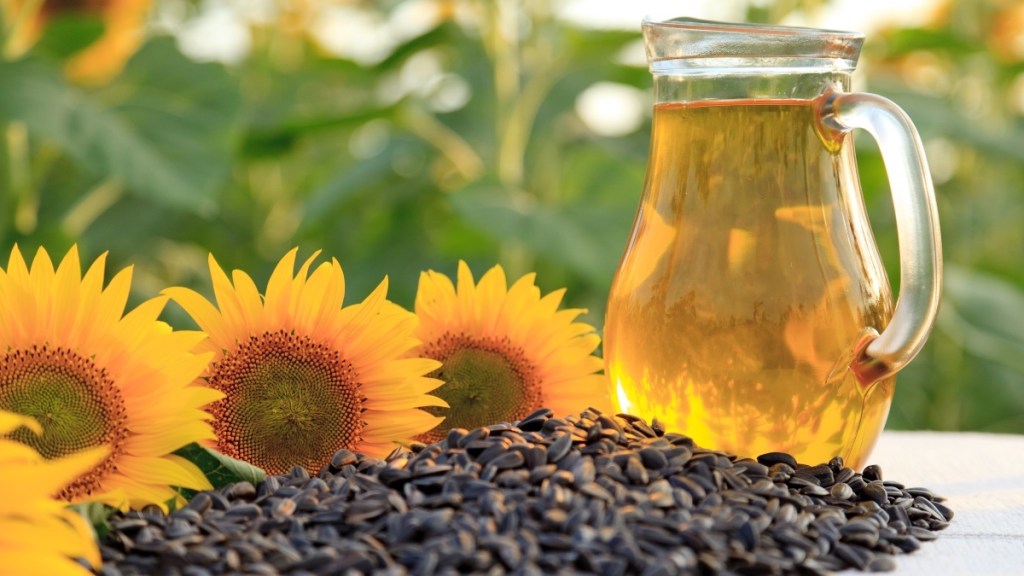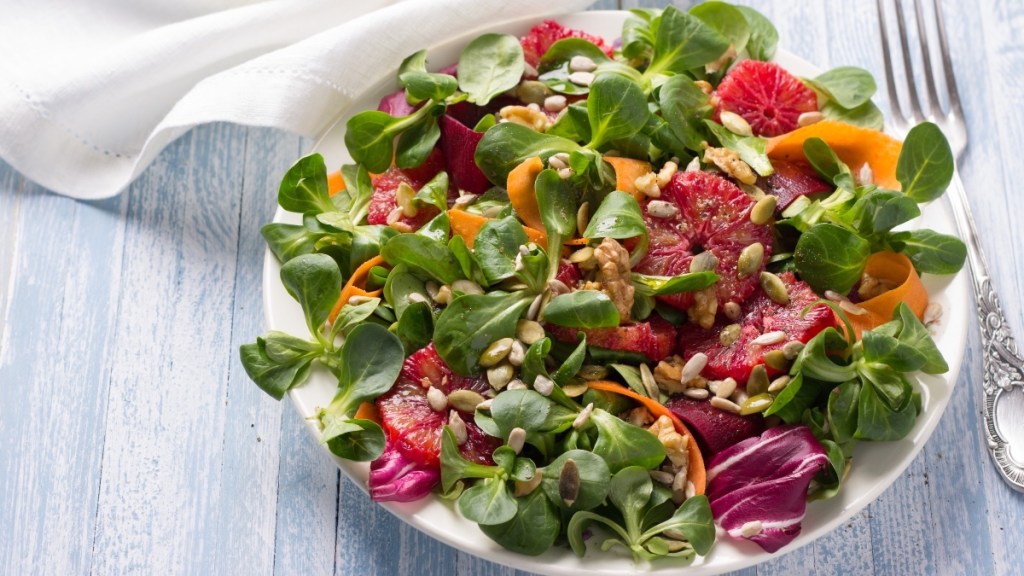Why Doctors Recommend Women Eat More Sunflower Seeds — 4 Big Health Benefits
And snacking on just 1/4 cup a day is all it takes!

Whether your sprinkle them over salads or savor them on their own, sunflower seeds are a classic snack. Aside from tickling your tastebuds, these nutrient-packed seeds are especially good for you. Here, find out the top sunflower seed benefits for females, plus more ways the crunchy treats improve your health.
What makes sunflower seeds so healthy
“Sunflower seeds have protein, healthy fats, fiber, vitamins such as vitamin E, and minerals including magnesium and selenium,” says Melina Jampolis, MD, an internist, board-certified physician nutrition specialist and co-founder of Ahara. “These nutrients play crucial roles in supporting immune function, bone health, heart health, and provide antioxidant protection.”
Just one serving (about ¼ cup, or 46 grams) of sunflower seeds boasts 4 grams of fiber, 10 grams of protein (more than 20% of the amount women need daily), 150 mg of magnesium (over 48% of females’ recommended intake) and 24 mcg of selenium (nearly 44% of the amount you need daily). It’s this nutritional profile, specifically healthy fats, protein and antioxidants that make snacking on sunflower seeds such a smart choice.
“Consuming antioxidants through foods like sunflower seeds help protect the body’s cells against free radicals and can fight off inflammation,” says Erin Palinski-Wade, RD, CDCES, a New Jersey-based dietitian and author of Belly Fat Diet For Dummies.
Why that’s important: Free radicals and inflammation can contribute to health conditions such as diabetes, heart disease and more. But the antioxidants in sunflower seeds act as a bodyguard to protect cells from damage.

Sunflower seeds ward off chronic health issues
Research in Free Radical Biology & Medicine found that vitamin E is especially helpful at lowering inflammatory markers that lead to a higher risk of heart disease and type 2 diabetes. And another study in the American Journal of Epidemiology of more than 6,000 adults found that those who ate the most sunflower seeds (more than 5 times a week) had a noticeably lower risk of heart disease and diabetes than those who rarely ate the seeds.
But the benefits don’t stop there. Sunflower seeds also help keep your “bad” LDL cholesterol in check. A study in the journal ISRN Nutrition found that the abundance of beneficial fatty acids in sunflower seeds helps blood vessels relax, gently lowering your blood pressure. This eases strain on your ticker to help reduce the risk of heart disease, too. (Click through to learn how a quercetin supplement improves heart health, too.)
Sunflower seed benefits for females
While it’s true that sunflower seeds make a smart snack for anyone, women may get the biggest health boost from the crunchy snack. Here, our experts break down the sunflower seed benefits for females.
1. Better blood sugar control
“Insulin resistance is a major hormonal problem that happens to women [especially those over 50], causing weight to shift from the butt to the gut,” explains Dr. Jampolis. “It can lead to pre-diabetes and diabetes if not managed.”
Insulin is a hormone produced by the pancreas that helps your body manage blood sugar. When your body’s cells start to become resistant to insulin, they don’t respond to the hormone as effectively. The result: Elevated blood sugar levels and an increase in belly fat, explains Dr. Jampolis. That’s where sunflower seeds can help.
The soluble fiber, magnesium, polyphenols and healthy fats found in sunflower seeds help reduce insulin resistance and keep blood sugar levels stable, says Dr. Jampolis, warding off middle-age spread. (Need an extra boost? Click through to learn how olive oil balances blood sugar to make weight loss effortless.)
2. Fewer menopause symptoms
During menopause, your levels of estrogen and progesterone hormones decrease. With a lack of estrogen in particular, you’re more prone to menopausal symptoms such as hot flashes, insomnia, vaginal dryness, mood changes and more. “The vitamin E and folate found in sunflower seeds help balance female hormones by regulating estrogen levels,” says Palinski-Wade. And as a result, women experience fewer, less intense menopause symptoms.
For example, the vitamin E in sunflower seeds is a phytoestrogen, a plant compound that acts like estrogen in the body. And a study in Nutrients suggests simply increasing your intake of this key nutrient can significantly reduce the intensity of hot flashes, ease vaginal dryness and reduce insomnia.

3. Stronger bones
According to the Bone Health & Osteoporosis Foundation, of the estimated 10 million Americans with osteoporosis, 80% of those are women. One major reason is a decrease in bone-protecting estrogen, which plummets as women reach menopause.
“The magnesium found in sunflower seeds is important for maintaining bone health,” adds Dr. Jampolis. And noshing on magnesium-rich foods like sunflower seeds can help keep your skeleton strong. In fact, a study in Biometals found that women with low magnesium intake where noticeably more likely to have lower bone mineral density than those who got adequate stores of the nutrient. (Click through for the best foods to prevent bone loss.)
4. An improved mood
It’s no secret that hormone changes during menopause can cause blue moods and irritability. The good news: Savoring more sunflower seeds can keep your spirits up. The seeds are rich in tyrosone, an amino acid that’s used by the body to make the feel-good brain chemical dopamine. And according to research conducted at the Montreal Neurological Institute, shoring up your stores of the amino increases dopamine levels by 30%, lifting your mood. Other foods that pack a payload of tyrosine: Eggs, turkey, chicken, fish, yogurt, almonds and avocados. (Click through for the best dopamine supplements to banish the blues naturally.)
How to get sunflower seed benefits for females
While you can enjoy sunflower seeds on their own, they also make a great “topper” for other dishes such as salads and stir fries. “The healthy fats in sunflower seeds act as a nutrient booster, helping your body better absorb fat soluble vitamins such as vitamin A, D and E,” says Palinski-Wade. “Combining sunflower seeds with foods that contain these nutrients may help enhance absorption.”

If you’re looking for a snack, Dr. Jampolis suggests pairing sunflower seeds with protein and fiber. One tasty idea: Greek yogurt topped with raspberries and sunflower seeds. “The Greek yogurt provides calcium and lean protein for preserving muscle,” she says. “And the probiotics found in Greek yogurt and polyphenols and soluble fiber in raspberries help with insulin resistance.”
What to look for in sunflower seeds
“Sunflower seeds can be salted or flavored, so check the ingredient list and opt for raw or unsalted, when possible,” Palinski-Wade says. “And pay attention to how you store sunflower seeds, too. They can become rancid due to the high fat content, so proper storage is important. Store them in an airtight container in your refrigerator or freezer to prolong the shelf life.”
Shelled sunflower seeds are often salted. Because of this, they’re high in sodium. “Seeds in the shell can contain more than a day’s worth of salt per serving,” says Dr. Jampolis. “Choose unshelled sunflower seeds and use them as toppings on salads or yogurt to keep portion sizes under control.”
How often women should eat sunflower seeds
“Eating sunflower seeds a few times a week is a terrific step toward reducing insulin resistance and reducing your risk of pre-diabetes and diabetes,” says Dr. Jampolis. Just keep in mind that sunflower seeds are also high in calories, adds Palinski-Wade. “Stick to ¼-cup as a serving size,” she says, which is approximately 146 calories.
For more good-for-you foods and drinks:
The Chlorogenic Acid in Coffee May Help Balance Blood Sugar and Ward Off Diabetes
MDs Reveal How Yogurt Can Calm Heartburn + The Stir-In That Boosts The Benefit
Olive Oil and Lemon Juice: The TikTok-Trendy Duo That May Deliver Real Health Benefits
This content is not a substitute for professional medical advice or diagnosis. Always consult your physician before pursuing any treatment plan.












